Roberto and Auvelino Acevedo do what they can to assuage their workers’ fears of immigration roundups.
The brothers, Columbia Fruit Packers orchard managers, tell employees that not everyone wants to deport them and to help their own cause by staying out of trouble, paying off debts and enrolling in classes.
“We tell them to avoid getting into any kind of problems, do the best they can at whatever they are doing,” said Roberto Auvelino.
Growers and managers must use caution, but they also can try to help their workers, who face fresh fears under a new U.S. president who has promised more aggressive enforcement.
President Donald Trump already has signed an executive order that appears to greatly broaden the government’s priorities of which undocumented immigrants to remove.
It’s not clear how that will play out on a broad scale in orchards and vineyards. However, the unknown makes both documented and undocumented workers uneasy. The Acevedos know some who moved back to Mexico already, not wanting to find out.
“Everybody’s on edge,” said Mike Gempler, executive director of the Washington Growers League, a Yakima, Washington, labor nonprofit.
John Teeple, an apple grower in Wolcott, New York, noticed an uptick in enforcement this year.
Federal agents picked up four workers from his area in recent months, as well as a few from neighboring regions.
“A few here and a few there, and you’re losing your labor supply,” he said.
Most of the arrests started with a traffic infraction in New York, which has strict identification requirements for driver’s licenses, he said.
However, about a week before Christmas, Immigration and Customs Enforcement agents arrested one of his employees, who had been at the farm for 20 years, as he ushered his children onto the school bus.
Teeple doesn’t know what triggered the arrest, but the agents had a subpoena for the man’s work records. The man’s wife is a legal resident who also works at the farm, and the family owns a home. Their children are U.S. citizens.
“I watched him get married. I watched him have three kids,” Teeple said. “Now he’s sitting in a detention center waiting for a hearing. And he may get deported.”
Across the country
In Washington, ICE agents have visited warehouses and orchards to arrest individual workers on warrants for conduct already addressed by courts, sometimes years ago, said Brendan Monahan, a Yakima attorney who represents growers for Stokes Lawrence law firm.
Monahan calls these “aged convictions” or guilty pleas for nonviolent conduct that did not involve drugs. “This type of apprehension is not something we’ve seen in the past 10 years at least,” he said.
In late March, ICE arrested 84 people in a roundup throughout Alaska, Oregon and Washington, including the Eastern Washington counties of Adams, Lincoln, Grant and Chelan — areas heavy in tree fruit and grape production. However, it’s unclear how many, if any, of those arrests involved those industries.
Some growers suspect eVerify, a federal Internet-based method for double checking employment eligibility document, will become mandatory for farms.
“That’s why our phones are ringing off the hook,” said Dan Fazio, CEO of Wafla, a Lacey, Washington, farm labor organization.
He predicted “devastating” effects to the fruit industry if that happens without a corresponding solution to the estimated 11 million people already in the United States without documentation.
Estimates vary, but undocumented immigrants make up anywhere from 50 percent to 70 percent of the 1 million or so field laborers in America.
In early April, Wafla held a webinar instructing growers how to react when ICE agents visit.
Use caution
Well-intentioned growers who want to help out their employees must tiptoe.
Federal law prevents employers from demanding which documents from a list of acceptable ones to require when workers fill out I-9 forms. So, odds are, they have at least some undocumented workers in their ranks.
Sending one of them, individually, to an immigration attorney may expose the grower to accusations of knowingly accepting fraudulent papers.
“They’re in a very tricky situation,” said Tom Roach, a longtime immigration attorney in Pasco, Washington, and frequent speaker at labor conferences and community meetings.
He recommends growers make general suggestions to the entire workforce or give out attorney’s business cards to a foreman.
Setting out immigration rights and responsibilities literature in a common area wouldn’t cause any liability either. Immigration attorneys also set up tables at job fairs and training events.
Suspecting an increase in I-9 audits, Roach also suggests growers double-check that their I-9 forms are in order.
They also should generally and collectively advise employees to get other aspects of their life organized — make sure all car lights work, pay off debts and even make arrangements for somebody to take care of their children, just in case they are picked up.
Jose Ramirez, an orchardist in Royal City, Washington, says he knows of farmworkers in his community doing those things now. “They’re concerned,” he said. “They’re trying to get stuff in order.”
He advises growers to help their workers in small ways. Pay them as well as you can, be flexible with work schedules and sick kids, steer them toward education, including English classes, and generally try to understand them and their problems.
“Make your workers feel like part of your operation and not just with words,” he said. •
ONLINE
Roach & Bishop Law Offices has compiled a list of workers’ rights in the event they are approached by Immigration and Customs Enforcement officers. The list is available in English and in Spanish at goodfruit.com/resources
– by Ross Courtney

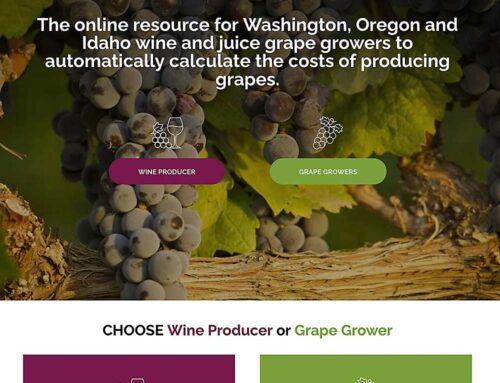
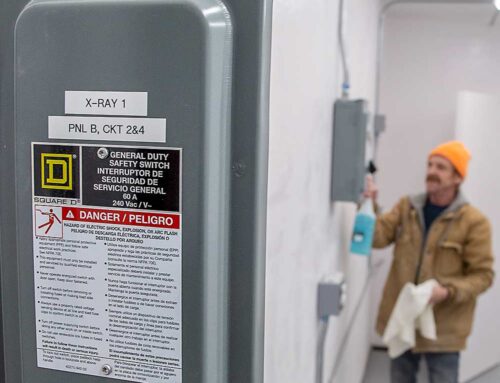
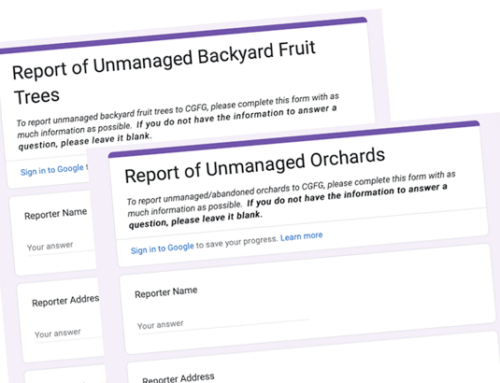
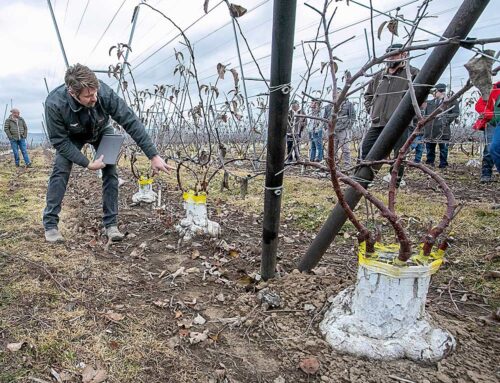
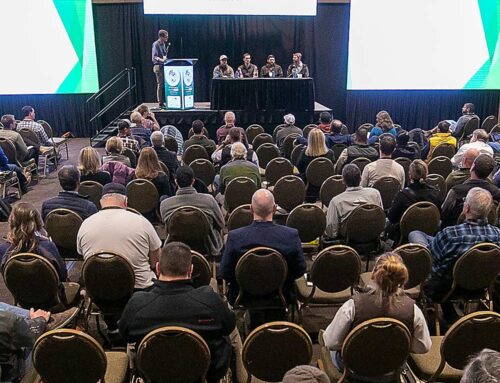
Leave A Comment